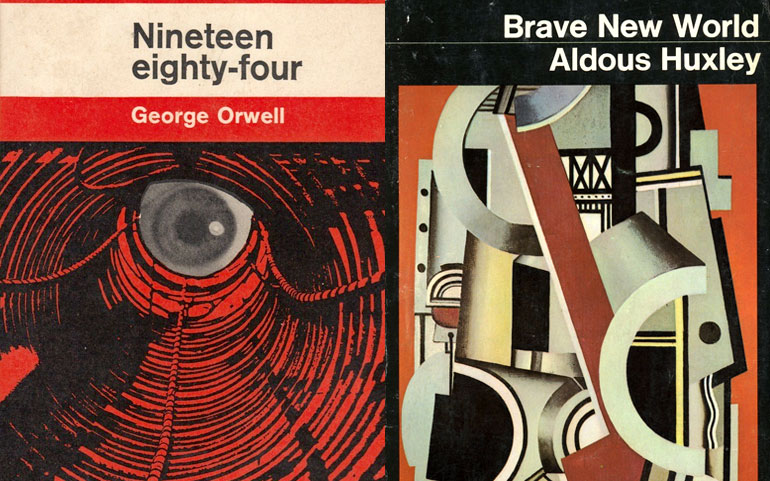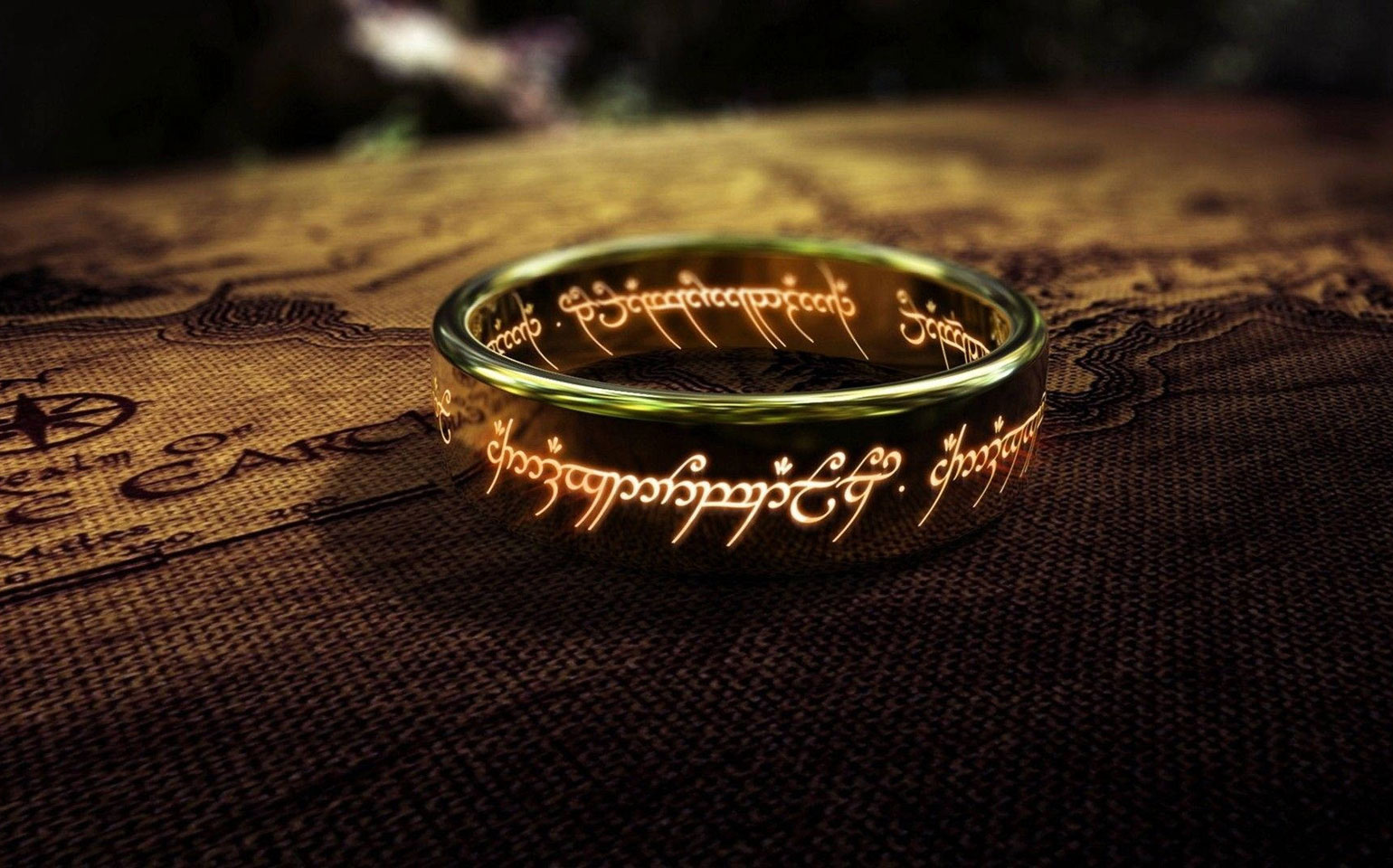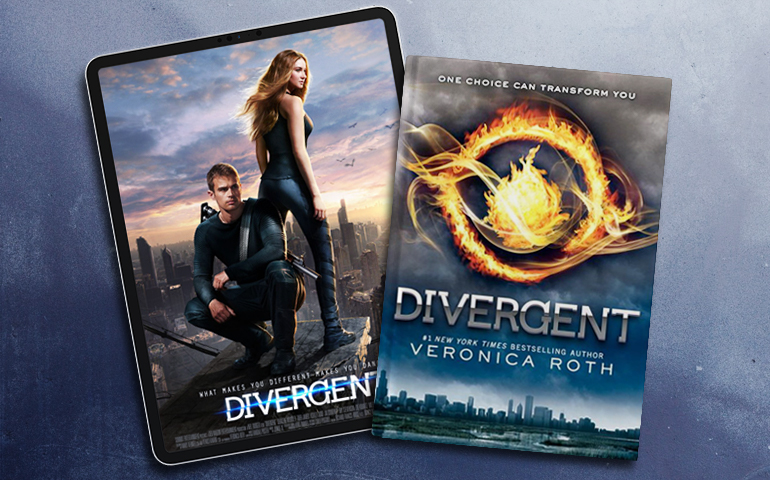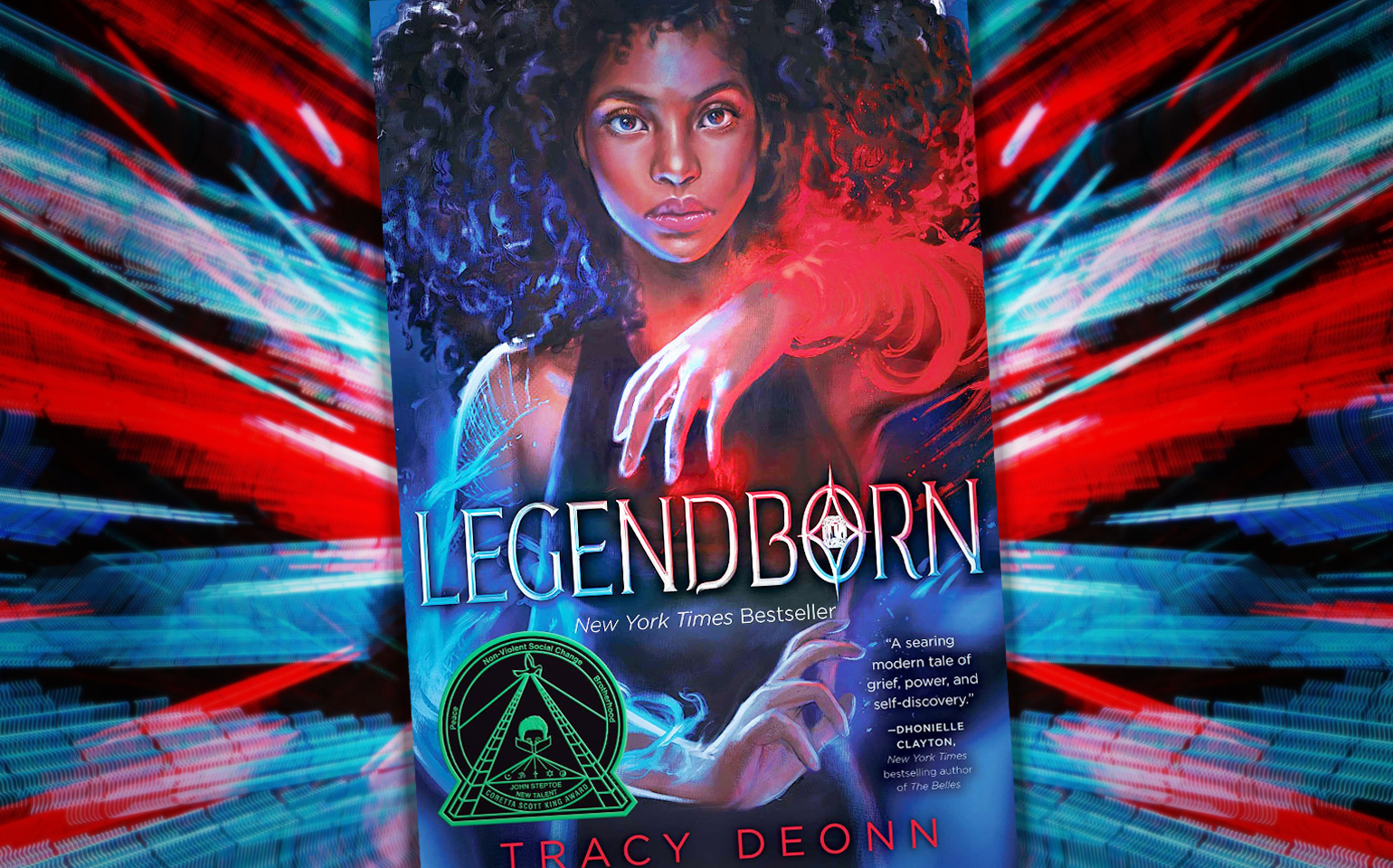
Deconstructing Dystopic Literature
By definition, the term “dystopia” means, “a perfectly horrible world.” Dystopias are the opposite of utopias and they essentially are a failed attempt to create the so-called “perfect world.” Within some dystopias, it is quite clear they are failed attempts, but with others, you often need to do some deep thinking into what exactly is flawed within the world. My class has been doing a dystopian novel study, so I have been quite interested in this whole idea. I don’t consider myself an expert but I will outline some of the differences in the novels I have read which are 1984 and Brave New World.
1984
1984, George Orwell’s bleakly dystopic novel about the dangers of totalitarianism, warns against a world governed by propaganda, surveillance, and censorship. The novel essentially is a world eerily similar to the life during World War One or World War Two, with food rations, mass poverty, and property destruction everywhere you go. I found this book quite interesting because the novel had a plot that made the reader want to continue reading because. There is a lot of deceit, betrayal, and contradiction. You see, I think the appeal of dystopian novels is the excitement to see what is going to happen next. Personally, I preferred 1984 over Brave New World because there was a lot more to look forward to. That isn’t to say Brave New world wasn’t interesting! It simply has a different kind of appeal which I will mention later one. The extreme ideas shown in 1984 kind of make a lot of us laugh, but then we see characters truly believing the garbage being spoon fed to them. it just is so absurd that we find it really interesting!
The ideas outlined in 1984 are so bizarre that if someone in the present were to put them out there it would sound like a joke; however, within the novel people believe it! I mean just hear me out, “freedom is slavery?” That is the most obvious contradiction I have ever seen, yet in the world of 1984, people believe it because there is no history to support their disagreement. They are essentially brainwashed and blackmailed with fear of persecution to follow all that Big Brother–the ruling government party–says. One of my favourite quotes clearly shows the flaws within 1984.
Edmund Burke once said, “Those who don’t know history are destined to repeat it.” In 1984, the government eradicated history entirely and by doing so, condemned themselves to repeating and practicing government tactics known to fail.
This is seen in how the novel used a totalitarian style of governing which has previously failed many nations in the past including Uzbekistan, Syria, Kazakhstan, and many more. The government practically erased history to the point where even if you lived through the time, you doubt whether what you know is truly correct or fabricated by the government! It is such a hard concept to wrap your head around, am I right? To be completely honest, I saw the novel as a cautionary tale for teens specifically, because a lot of teens dislike history and ask, “why do I have to learn about something that happened fifty years ago?” I think George Orwell gave them an answer they will never forget!
Brave New World
The second dystopian novel I read is Brave New World. Now, I am going to be completely honest, it was an odd book when comparing it to a seemingly more plausible 1984. Babies were created in factories, aging has become a foreign concept, and sadly, once again, Indigenous people are considered “savages” by the rest of the society. I feel Brave New World has a different mood in comparison to 1984. When we start the novel, we are not introduced to this sad, clearly dystopian world, but rather a futuristic world that seemingly has no problems. In other words, economic turmoil is nonexistent. As we continue reading, we realize the problem with this world does not lie within the environment people live in, but rather the lack of human emotion and individuality.
Characters within the novel are only driven by happiness from drugs and sex and have no other means to express themselves. The novel clearly outlines a world where people are conditioned not to have certain emotions and to behave a certain way.
This concept differs from the world of 1984 because people in 1984 at least could remember a past before the world they live in. However, in Brave New World, nothing is known about how the world came to be as it is. It is all left up to the readers’ interpretation and imagination.
In comparison to 1984, the people within Brave New World believe it is a utopia because they do not have the history and knowledge to tell them otherwise. It is contrary to the readers’ interpretation of the novel that dubs it a dystopian world. Personally, I felt Brave New World had less plot development in comparison to 1984 and was mostly a description of how the world functions through the lens of the narrator and of the few important main characters. In addition, I felt both novels fell into a common dystopian trope with a strong sense of control. This is shown through varies aspects of both novels such as surveillance, hierarchy, repression of emotions, and fear.
The purpose of outlining the differences between both books is to show that dystopian novels are a popular genre of story because they contain bizarre worlds that have been normalized and we follow how people live in these worlds, which is quite intriguing for the reader. People enjoy change, and dystopian novels take that fact and exploit it! Try reading a dystopian novel and see if you enjoy it!



